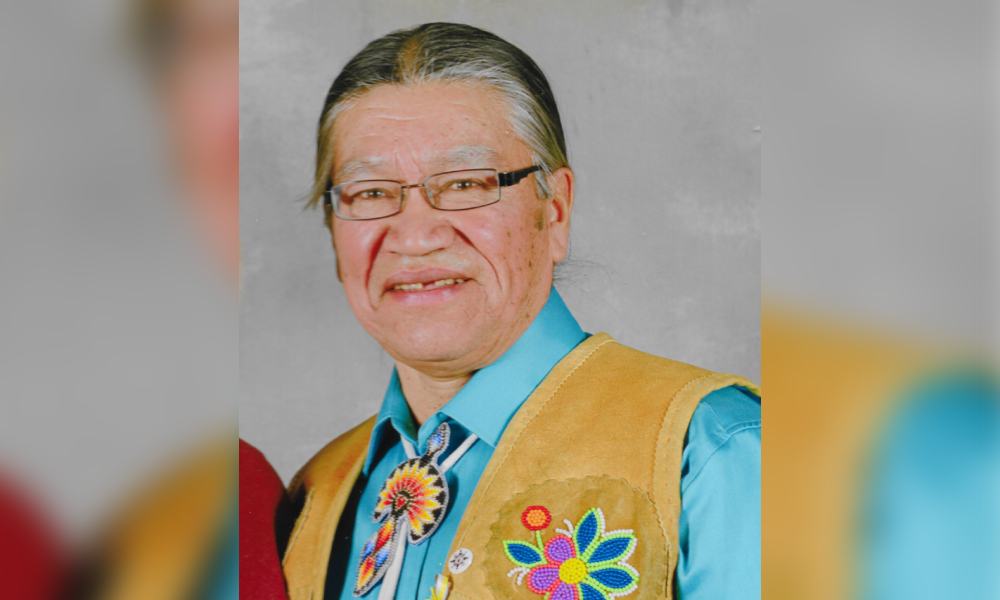
Documents illustrate 1992 OPP investigation which led to five convictions of school staff

The Court of Appeal ruled Monday that a case about whether the Government of Canada is withholding information detailing physical and sexual abuse at St. Anne’s Indian Residential School will stay in Ontario.
The decision was reached by Justices Michael Fairburn, Paul Rouleau and Bradley Miller. It overturns a ruling from June, made by Superior Court Justice Paul Perell, who had ruled the matter should be heard in British Columbia due to the administration protocol of the Indian Residential School Settlement Agreement (IRSSA).
“It was an admission that an Ontario issue remains in Ontario. But is that a real victory? They give you something small and you're supposed to be happy with that. And we are dealing with bigger issues in that,” says Edmund Metatawabin, who brought the appeal with other former St. Anne’s students.
Between 1992 and 1996, the Ontario Provincial Police investigated claims of physical and sexual abuse made by former students of St. Anne’s. The investigation resulted in criminal charges against seven former employees, five of whom were convicted. St. Anne’s is located around Fort Albany Ont., near the James Bay Coast and was in operation from 1903 to 1973
The appellants in Fontaine v. Canada (Attorney General), 2020 ONCA 688 say that the Government of Canada owes them the documentation from that OPP investigation. They argue that despite two court orders from 2014 and 2015, the Government has yet to produce the material and is in breach of the IRSSA.
In 2006 and 2007, the IRSSA was approved by nine Superior Courts across Canada. The IRSSA combined various class actions and civil claims related to Indian Residential Schools and included a class of around 79,000 people. The IRSSA established the Independent Assessment Process (IAP) as a method to determine financial compensation for the class members under the settlement.
Under the settlement, the Government was required to disclose everything it knew about every allegation of child abuse at every Residential School but the Department of Justice had withheld the information produced from the 1992 OPP investigation, says Fay Brunning, counsel for Metatawabin and the appellants. The federal officials in charge of adjudicating the IAPs were interviewing former St. Anne’s students without access to the testimonies detailing physical and sexual abuse, she says.
“Adjudicators were given none of these documents and they were given a report saying there were no documents about sexual abuse at this school whereas the details would make anybody physically sick to realize what the children endured in this institution,” Brunning says.
The nine IRSSA approvals carried a Court Administration Protocol (CAP) governing the supervision of the courts’ administration and implementation of the IRSSA, as well as the process for hearing Request for Directions (RFDs) from class members or other parties. Requests for Direction concern court orders, directions or consideration during the course of the IRSSA’s administration.
The CAP provides for nine supervising judges across Canada, and from those nine, two are selected as Eastern and Western Administrative Judges. Justice Perell was the Eastern Administrative Judge and decided to recuse himself from ruling on the orders. He decided to move the case to the Western Administrative Judge in B.C.
Now, the Chief Justice of the Ontario Superior Court will appoint a new supervising judge to hear the matter.
“It's been a long haul… The St. Ann's survivors have tried to properly utilize the Ontario justice system since 1992,” says Brunning.
Metatawabin is former Chief of Albany First Nation and attended St. Anne’s from 1956 to 1964. He is not a class member under the IRSSA but acts as a spokesperson and coordinator for Peetabeck Keway Keykaywin (St. Anne’s Residential School Survivors Association). Metatawabin is also an author and was named Companion of the Order of Canada in 2019.
Metatawabin began at St. Anne’s at age six. The school was located around 225 km away from his home. The Catholic Church of Canada’s goal of “assimilation and brainwashing” involved such disciplinary tools as the strap, an electric chair as well as forcing students to eat their own vomit, he says.
“Now, instead of the government saying, ‘You know, this really happened to you,’ it was continuous denial,” Metatawabin says.
Metatawabin and former St. Anne’s have written to the Prime Minister and other Federal Government officials about their difficulties in the IRSSA process but have not seen a response, he says.
“How do I know nothing will change? Because the (United Nations) Declaration of the Rights of Indigenous Peoples has never been brought to the floor of the House of Commons. That shows you right then and there, the true face of Canada. They will not discuss that, and they will not give us a proper place in Canada. So we are still the prisoners of Canada, as it was designed earlier.”